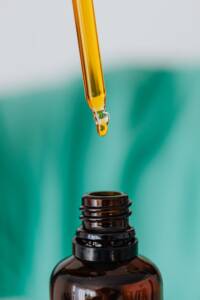Three Ways to Safely Clean Your Ears
Excess earwax buildup can cause you to suffer from difficulty hearing, ringing in the ears, dizziness, and earaches. Common cleaning methods, such as cotton swabs and tissues, can push wax further into the ear. These techniques aren’t recommended for cleaning anything other than the outer ear. However, there are still a few effective ways to relieve earwax buildup at home.
PLEASE NOTE: Before putting any sort of drop/solution in your ears or flushing your ears, it is imperative to ensure that your eardrum is healthy and that the structure is intact (ie: no hole in the eardrum). You also do not want to use these methods if you have tubes.
Wiping With a Damp Cloth
Long, pointed objects are not safe for earwax removal because they can damage the eardrum or other sensitive structures in the ear. If a considerable amount of the earwax is concentrated in the outer areas of your ear canal, you may be able to clean it using a damp cloth. Wipe the affected areas gently, being careful not to go too deep and push the wax farther inside.
Using an Earwax Softener
For wax that has hardened and is deeper in the ear, an over-the-counter earwax softener may help. Softener drops typically contain mineral oil, baby oil, peroxide, hydrogen peroxide, or glycerin. You can administer this product safely with a medicine dropper. Once the earwax has softened after a day or two, you can flush it out with lukewarm water.
Rinsing With Water or Saline
You can use water or a saline solution to help with less severe earwax buildup. Simply fill a syringe with water or saline and irrigate your ears until the wax has been flushed out. Be sure to use a solution that is approximately the same temperature as your body to avoid irritating your ears or becoming dizzy.
Although there are a few useful methods of removing earwax on your own, more intense buildups and any signs of infection should be assessed by an audiologist or ENT physician. At Associated Hearing Professionals, we can help with earwax-related hearing problems. Our audiologists will address your hearing concerns, including hearing issues and tinnitus, and work with many different types of hearing aids to assist patients in the St. Louis area. To schedule an appointment with us, call 314-656-8510 or fill out our contact form.

